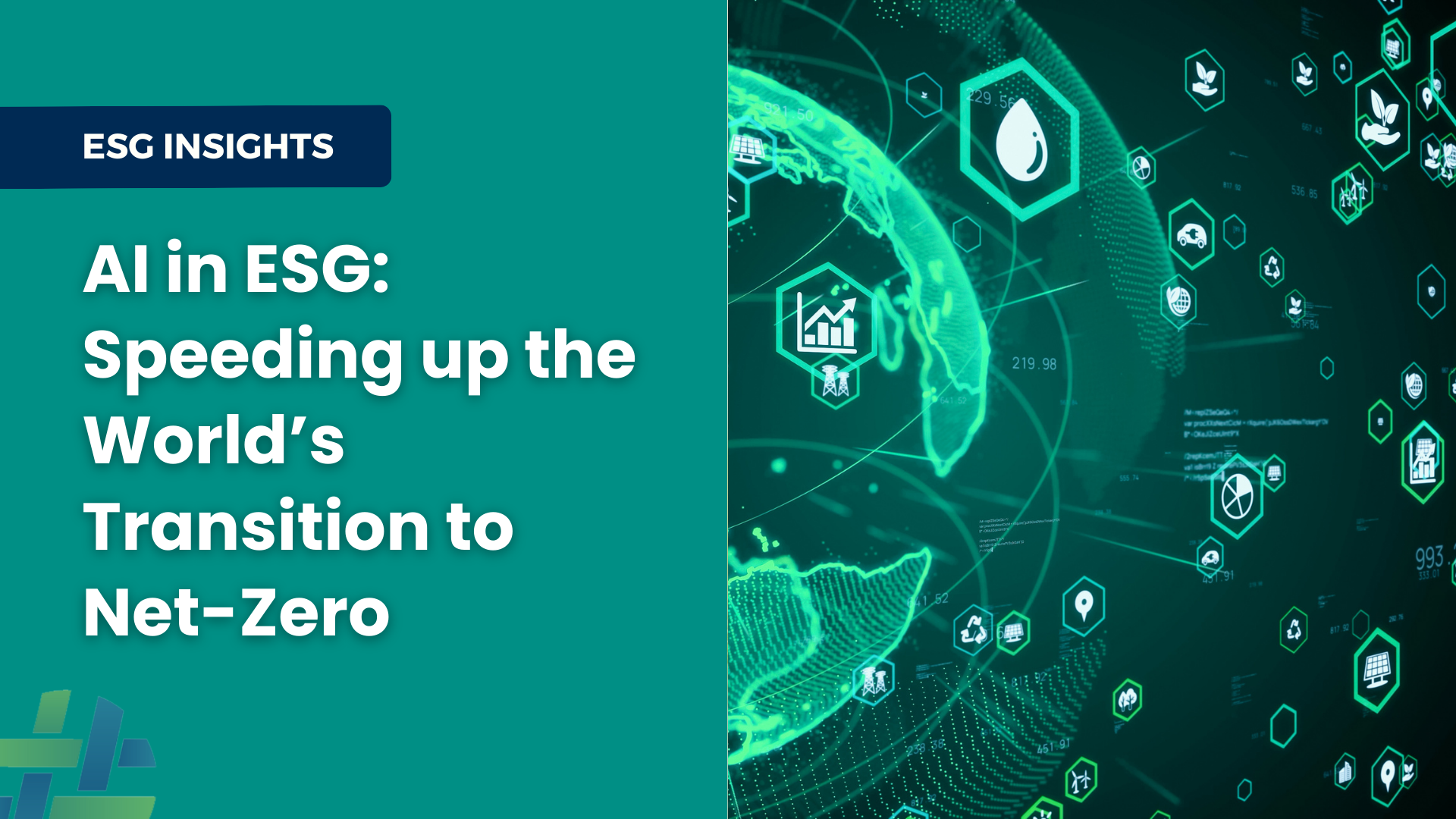AI in ESG: Speeding up the world’s transition to Net Zero

Published 16 October 2023 –
Digital and analytics tools are playing a crucial role in aiding businesses on their sustainable journey and in ensuring environmental, social, and governance (ESG) data is valid and verifiable as the world transitions to a low-carbon economy.
What is talked about less often is that artificial intelligence (AI) is a key enabler in all of this – validating, capturing from disparate sources, aggregating, and harmonising all the data coming from day-to-day business operations.
The world is hung up on AI in the form of generative chatbots and image creation such as ChatGPT and Midjourney – and rightly so – but in reality that is just the latest popular application of AI technology that regular consumers are able to play with.
When large environmentally-conscious companies like Apple use AI, for example, it is no less powerful than generative AI applications we are seeing in daily news headlines, but it is being applied behind the scenes where consumers do not necessarily see it.
The same is true for how AI is today playing an important role in helping the world transition to net zero, with technology firms building ESG data platforms increasingly leveraging this powerful tool.
The AI revolution in ESG data

In the ESG data landscape, AI empowers the process of collecting, cleaning, and harmonising data. It also offers predictive capabilities that can help with climate risk evaluation and decision-making.
AI-powered companies like STACS, Unravel Carbon, MioTech, and Nexus FrontierTech are examples of technology firms on the cutting edge of building platforms that help corporates, SMEs, and financial institutions bring transparency and accountability to the ESG performance of their operations, supply chains, and investment portfolios.
STACS leverages proprietary AI to aggregate sustainability data points and generate standardised ESG profiles at the company level on ESGpedia through:
- Intelligent matching of disparate data sets across different data standards to the right corporate entity, and
- Smart extraction of relevant ESG data points from unstructured data sources, such as sustainability reports.
As of today, ESGpedia provides one of the most comprehensive global company coverage, with 316,000+ companies’ sustainability data, of which 107,000+ company profiles have full corporate data overlaid and standardized by STACS’s AI-powered engine. This allows banks and corporates to easily and confidently access accurate, consistent, and comparable data on a one-stop registry for sustainable financing, ESG risk monitoring of portfolio, as well as to monitor the sustainability performance of suppliers.
With increasing regulations and talks around mandating ESG reporting, Unravel Carbon enables enterprises to decarbonize themselves and their large ecosystems of enterprises, with speed and scale. with an AI-powered decarbonization platform that converts any company’s accounting data into full supply chain carbon data in seconds, generates climate solutions automatically, and auto-populates regulatory disclosure reports.
Other than data extraction and harmonisation, AI is now increasingly employed to study complex climate data. That is what Hong Kong-based green data start-up, MioTech, is leading to empower carbon emission reduction. MioTech utilises AI technologies such as Natural Language Processing (NLP) to analyse publicly available data, including a company’s own disclosures, information on its websites, government records or media reports, and extract relevant information based on text-based keywords. If a company does not disclose climate-related data or has no records in the public space, MioTech then looks for proxy predictors that are indicative of its GHG emissions — energy consumption or data about its product lines, applying machine learning for estimation.
To enable effective ESG investing, Nexus FrontierTech utilises AI-powered models and analytics to help investors and stakeholders better apply ESG data and insights to inform investment and engagement decisions, and overall drive progress towards a more sustainable future.
With great power comes responsibility
Using AI ethically must be top of mind for every firm harnessing this powerful technology, which means ensuring the way it is applied to your business is both transparent and explainable to your partners, investors, colleagues, and customers.
The decision-making process of AI systems should be easily understandable and open to scrutiny, helping to prevent hidden biases and discriminatory practices.
For example, companies in hard-to-abate industries such as energy or manufacturing should not be prejudiced by AI algorithms simply due to the sector they operate in – while it can be an indication of their ESG credentials, positive actions may be being taken such as purchasing high-quality carbon credits to offset their emissions in the early stages of their green transition.
Secondly, AI should be deployed with data privacy and security boundaries in mind.
AI algorithms rely on large amounts of data – ESG data in this case – to learn and make predictions, which makes it essential that this data is collected, stored, and processed with strict protocols to ensure privacy rights are respected.
Technology providers must also put in place resilient system-wide protections against hacking or misuse from bad actors, who may wish to steal the large amounts of data AI uses.
Thirdly, human oversight and accountability is vital when embedding AI into any technology platform.
While AI systems can learn from data and make predictions, they lack the ability to make ethical judgments on their own, and so it is crucial for humans to ensure that AI systems do not make decisions that are harmful.





